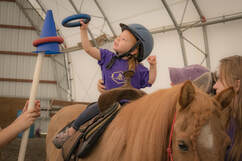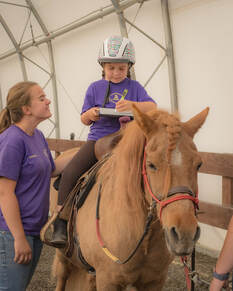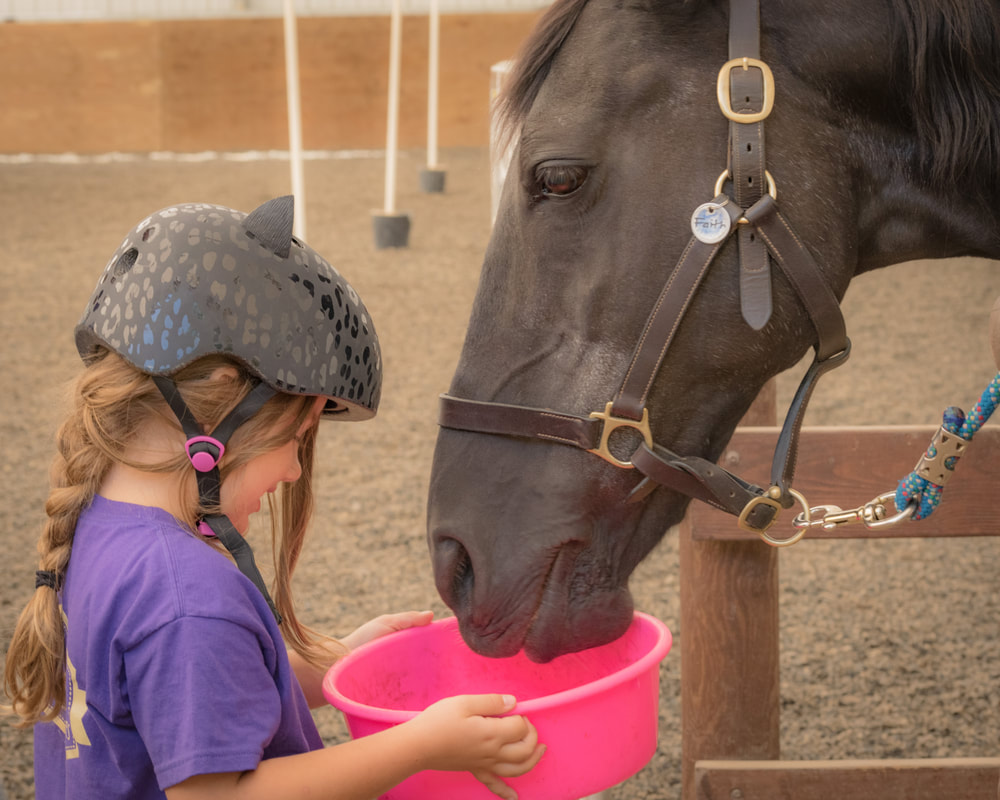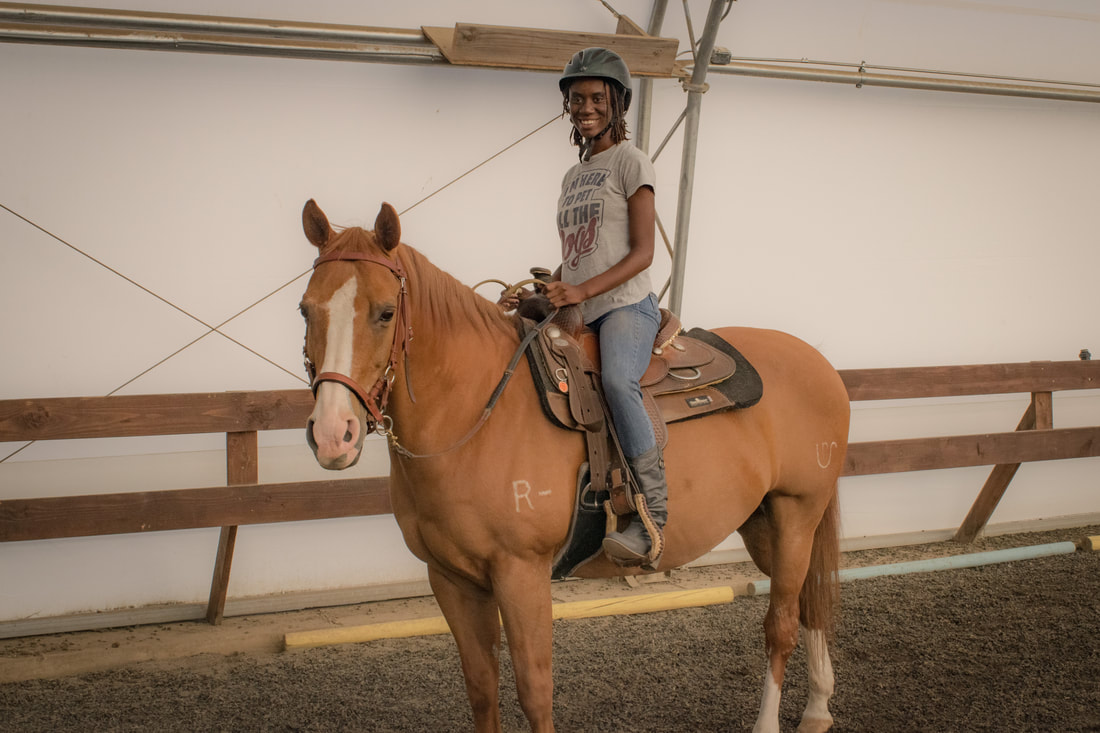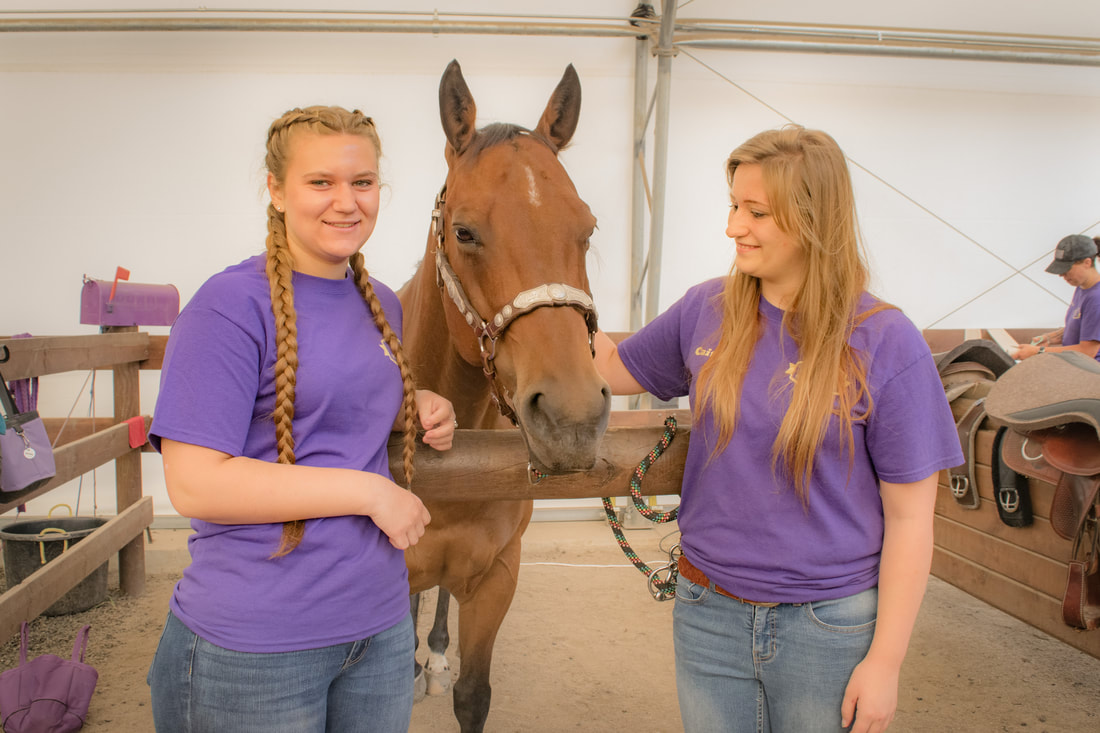OUR PROGRAM
Our therapeutic riding lessons provide a safe atmosphere where students can participate in a fun activity that brings them great joy. In these lessons students learn appropriate social skills and how to connect with animals. They learn about consequences and making good choices. They are given opportunities to use fine and gross-motor skills, practice left/right discrimination, and eye-hand coordination in a fun way. Most students are involved in getting their horse ready for lessons and helping take care of the horse after they ride. This teaches them patience, responsibility, and respect!
BENEFITS OF THERAPEUTIC RIDING
Physical
|
Physical Benefits. Horseback riding provides a fun, recreational activity students can do to improve their physical strength and coordination. Horses provide a three-dimensional movement for the student, which simulates a humans walking gait very closely. Students with physical disabilities are also able to reduce spasticity and increase the range of motion in their joints.
|
COGNITIVE
|
Cognitive Benefits. Student’s that benefit greatly from equine therapy are those with cognitive delays, such as individuals with Autism, learning delays, Fetal-Alcohol Syndrome, Down syndrome, etc. These students learn task sequencing, hand-eye coordination, multi-tasking, sensory integration, left/right discrimination, spatial orientation, and motor planning. They are able to practice these skills in a fun and safe environment while connecting with the horses.
|
PSYCHOLOGICAL
|
Psychological Benefits. Crossing Bridges focuses on providing opportunities for all of its students to gain self-confidence. People of all ages and walks of life can reap the psychological benefits of horseback riding. Horses teach students emotional control and self-discipline; the students quickly learn that emotional outbursts upset the horse. Students also learn the importance of patience when riding horses and carry this over into all aspects of their lives.
|
NON-DISABLED INDIVIDUALS
|
Benefits for Non-Disabled Individuals. Some student’s attracted to Crossing Bridges may not have specific therapy goals or special needs; they may just love riding horses. Some may be competing in local horse shows, 4-H events, or High School Equestrian Teams. Crossing Bridges also opens up doors for non-disabled individuals to not only take riding lessons, but also volunteer at the center and help those with special needs.
|
AT RISK YOUTH
|
Benefits for At Risk Youth. Horses help build confidence and self-esteem in the lives of at-risk youth. These students may have a very troubled background but when surrounded with the love and patience of a horse they are able to open up and learn to trust adults. They begin to learn that horses accept them on a non-judgmental basis and this in turn carries over to everyday life.
|
FOR MORE INFORMATION, OR TO SIGN-UP FOR LESSONS, PLEASE CONTACT:
Jennifer Clark, Executive Director
p: 541.441.7945 | e: [email protected]
Jennifer Clark, Executive Director
p: 541.441.7945 | e: [email protected]

